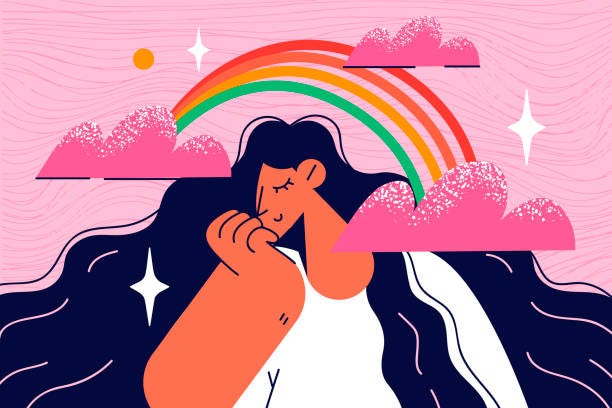Book Appointment Now
Maladaptive Daydreaming: Why do I Feel sick after Excessive Daydreaming

Today I am going to explore a common phenomenon: why do you sometimes feel unwell after a long stretch of daydreaming? If you’re a maladaptive daydreamer, you may have experienced that feeling — after you’ve emerged from an immersive daydream or a lengthy session of excessive fantasizing, you might find yourself feeling unexpectedly sick. It’s a sensation that can be so intense that you might even contemplate going to the hospital or experience the urge to vomit. But what’s the real reason behind this? Let’s dive into the logic and science behind it.
Physical Strain and Inactivity
Feeling sickly after a prolonged day of daydreaming can often be attributed to the physical strain that comes with it. When you spend extended periods lost in your imagination, your body tends to remain in one position for an extended duration. This prolonged physical inactivity can lead to muscle discomfort and a sense of physical unease.
Think of it as similar to what happens when you engage in vigorous physical exercise that your body isn’t accustomed to. Just as your muscles can ache and protest after such activity, the extended stillness during daydreaming can cause similar sensations. It’s as if your body is gently reminding you that it craves movement and change after being relatively stationary for an extended period.
Dehydration and Self-Care Neglect
When you’re engrossed in daydreaming for extended periods, you might unintentionally neglect essential self-care practices. This can include neglecting hydration, skipping meals, forgoing exercise, or even ignoring basic personal hygiene. When you deprive your body of these fundamental needs, you’re essentially setting yourself up for physical discomfort. Dehydration, for example, can lead to feelings of weakness, dizziness, and an overall sense of being unwell. It’s as though your body is sending a clear signal that it requires proper care and attention.
Intense Emotions and Mental Exhaustion
Moreover, the emotional and psychological aspects play a pivotal role. Daydreaming often triggers intense emotions, whether it’s the sheer joy of your fantasies or, in some cases, negative emotions like anxiety or depression. When your mind becomes a battlefield for such intense emotions, it can lead to a state of emotional overload. This emotional turbulence, similar to stretching your mental and emotional capacity to its limits, can leave you feeling fatigued and, in turn, physically unwell.
Additionally, while daydreaming might seem like a form of relaxation, it’s quite the opposite. Rather than quieting the mind, it involves overthinking, intricate mental scenarios, and vivid imagination — a far cry from a calm and tranquil state of mind. This overworking of the mind can result in mental exhaustion, leaving you drained and physically fatigued.
Dissociation and Reorientation
Daydreaming frequently entails a form of dissociation, where you temporarily detach from your true self and plunge into the captivating realms of your imagination. However, when you eventually emerge from a daydream, a crucial reconnection with reality becomes necessary. This transition from the vivid, often comforting world of your imagination to the tangible, everyday reality can be somewhat disorienting.
It’s similar to shifting from one dimension to another, almost like crossing a boundary between two separate worlds. This abrupt shift can disturb not only your mental equilibrium but also your physical well-being. It’s as if your mind and body need a moment to readjust to the different demands of reality, and this readjustment period can occasionally manifest as a feeling of being physically unwell.
Conclusion
In conclusion, feeling sick after daydreaming is not uncommon, and it’s important not to be too hard on yourself for experiencing this sensation. Instead, view it as your body’s way of communicating that it’s time to address some of the effects of excessive daydreaming. Focus on self-care, hydration, and managing intense emotions. Ultimately, recognizing and tending to these underlying factors can help you enjoy daydreaming without the unpleasant aftermath. Remember, understanding your body’s signals is a step toward maintaining a healthy balance between your imaginative world and reality.
Note from the Author
If you’re ready and you’d like my help with overcoming and managing maladaptive daydreaming without spending years in therapy, then you can book a FREE BREAKTHROUGH CALL with me HERE. Happy healing 💙💙. Feel free to share and comment! Use this information with caution, it comes from my own thoughts & bias, experiences and research😊.






